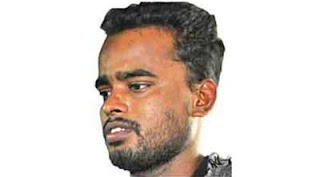If war with Iran is to be avoided, then negotiations between Iran and the P5+1 group have to succeed.
Turkey has already offered to host any talks, and Iran has said it’s ready to attend. It also seems likely that the P5+1 will also be willing to proceed. But with no date having yet been set despite tensions running so high, U.S. President Barack Obama should be willing to offer to go the extra mile and hold bilateral talks with Iran during any negotiations.
Yet doing so won’t be easy. Although the situation is delicate enough to make it well worth Obama’s while, Republican presidential candidates have been breathing down his neck demanding that he take a tougher line.
And they aren’t alone - allies the U.K., France and Israel have also been pressing him, meaning Obama’s room for maneuver would likely be limited even if such talks take place.
Either way, negotiations are about give and take. So just what exactly would Obama be able to offer?
At the least, he would probably offer to lift some of the current sanctions against Iran. At the most, he could also offer a modified version of the October 2009 Geneva deal. But this time, instead of Iran shipping out 75 percent of its low-enriched uranium (LEU) in return for nuclear fuel (as was the case in Geneva), Iran could be asked to ship out 100 percent of its 20 percent enriched uranium. This could be in addition to at least 75 percent of the remaining stock of uranium enriched at levels below 20 percent.
In return, all the shipped LEU would be turned into nuclear fuel for the Tehran Research Reactor, which would allow it to make medical isotopes. Such a high percentage of LEU being shipped out would ensure that the regime of Supreme Leader Ali Khamenei wouldn’t have sufficient LEU to make a bomb, if he were indeed inclined to try in the next year or so.
But what would Obama want from Iran in return?
At a bare minimum, the Obama administration would likely expect immediate answers from Iran to all outstanding International Atomic Energy Agency queries, which would probably entail immediate access to all sites of interest to the IAEA.
And what about Iran?
For Khamenei, it’s not going to be easy to offer much. On the one hand, he’s facing crushing economic and diplomatic pressure from Obama, the likes of which he hasn’t seen since becoming supreme leader. Should he ignore it, the Iranian economy, the health of which is crucial to the survival of the regime, could collapse.
On the other hand, the supreme leader is facing unprecedented problems at home. The regime is divided, with President Mahmoud Ahmadinejad becoming a more divisive figure every day. One has to ask how much longer Mahmoud Bahmani, the current head of Central Bank, will put up with him before resigning.
More importantly, Khamenei's position and policies are being questioned and criticized both directly and indirectly - in full view of the Iranian public - by former officials who have ties with conservative factions.
A good example is a recent opinion piece by Adm. Hossein Alaei, the founding father of the Revolutionary Guards Navy and former IRGC Joint Force chief. In his article, he mentioned some of the Shah’s regrets after he lost power, such as not allowing people to demonstrate peacefully and shooting demonstrators. Hardliners saw this as an indirect criticism of Khamenei and a warning against him that he’s making some of the same mistakes.
Alaei’s opinion piece was condemned in the press (including the IRGC’s publication Sobh-e Sadegh), and demonstrations took place outside his home. But this op-ed was followed by further criticism of Khamenei’s position by Emad Afrugh, a former member of parliament who is believed to be close to the “principalist” faction. During a live interview he criticized the fact that the position of the supreme leader can’t be challenged by the public.
For decades Khamenei has portrayed the United States as Iran’s enemy. So how can a leader whose regime is apparently scared of Barbie dolls (having banned them over fears of a Western cultural invasion) reach any kind of deal with Obama that could end up helping him win the 2012 presidential election?
Iranian hard-line revolutionaries take pride in arguing that Ayatollah Khomeini destroyed Jimmy Carter’s reelection chances with the U.S Embassy hostage crisis in 1979. Will Khamenei want to go down in history as the man who helped Obama stay in office? How could he justify this to his hard-line supporters without creating even more infighting?
For years, Khamenei has stonewalled efforts by presidents Rafsanjani and Khatami (and to a lesser extent Ahmadinejad) to improve relations with the U.S., even by reportedly rejecting a recent U.S offer to set up a hotline in October 2011. Khamenei’s ideologically driven animosity and hostility toward any improvement in relations with the United States has been a major factor in his calculations. And the anti-U.S. card has also, until now, served him well as a way of securing legitimacy at home, a necessity given that Khamenei had weaker religious credentials than his predecessor.
All this means that Khamenei isn’t in a particularly enviable position. He’s stuck between Obama and a hard place - with very little room to maneuver in between.



